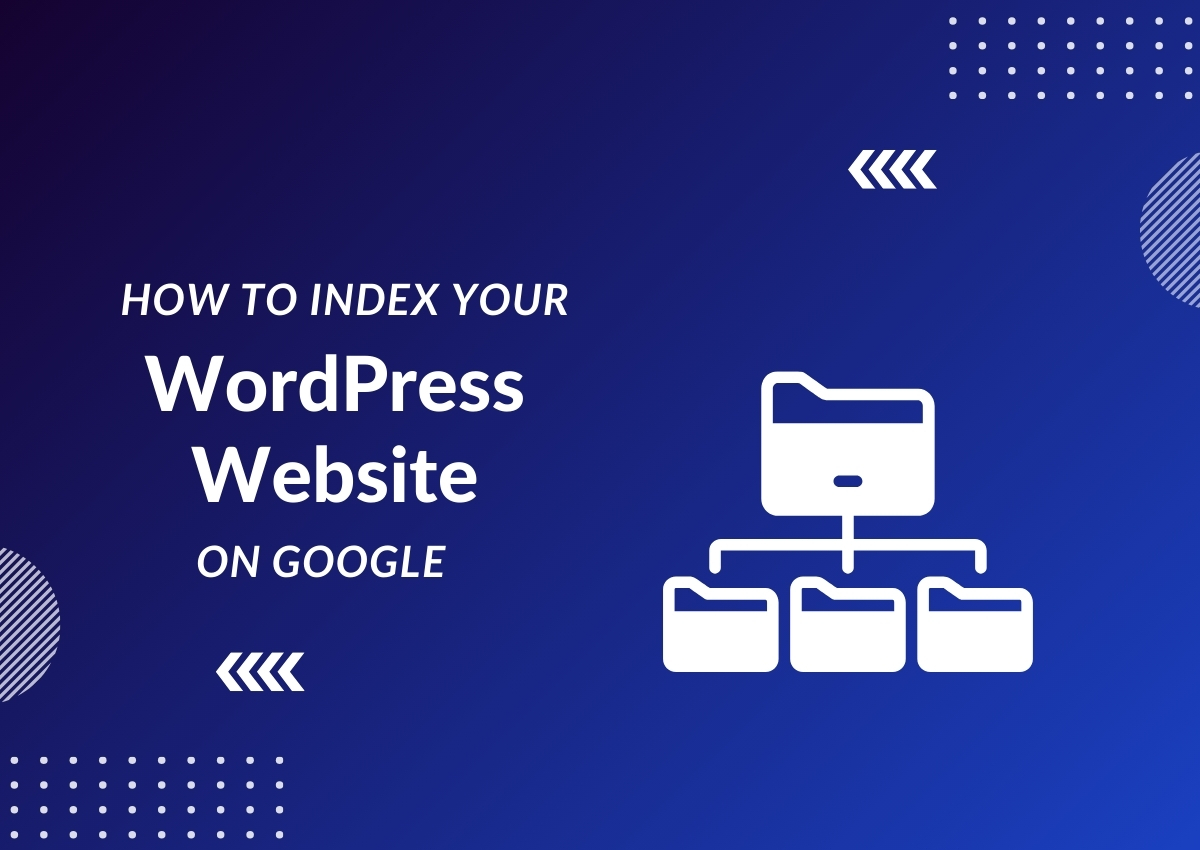How to Index Your WordPress Website on Google

You have published your first post, but it’s not showing up on Google’s search results. This also happened to me when I published my first post on WordPress.
But as the day passed, I learned about indexing and how important it is for a website to show up on Google’s search results.
And how Google’s crawlers (a bot that finds and reads web pages to store them in Google’s database) can only index your website if you follow certain rules.
So, In this guide, I am going to share with you the steps to index your WordPress website on Google.
Thus, you can make your content visible in search results and get more organic traffic to your website.
What is Google’s Index and Why It Matters?
Google’s index is like a massive database where the search engine stores information about all the websites it has crawled and deemed worthy of being ranked for relevant search queries.
For website owners, getting their site indexed in Google’s index is crucial because it determines whether or not their site will show up in search results.
If your site is indexed, it will show up in Google’s search results and rank for relevant keywords.
Hence, potential readers or customers won’t be able to find your site, resulting in missed opportunities for traffic.
So, it’s crucial to ensure your site is indexed for showing up in Google search results.
Preparing to Index Your WordPress Website on Google
Check WordPress Settings for Search Engine Visibility
The first important step people often forget to take is to make sure their WordPress site’s settings allow search engines to index it.
If your search engine visibility is set to “discourage search engines from indexing this site,” then your site won’t be indexed no matter what you do.
To check and change this setting,
- Go to your WordPress dashboard, navigate to Settings > Reading
- Scroll to the bottom and make sure the option “Discourage search engines from indexing this site” is not checked
- Save changes if you made any.
This will ensure your site is visible to crawlers to get indexed.
Create an XML Sitemap
A sitemap is like a roadmap for search engines, telling them the structure of your site and where to find all its content.
Creating an XML sitemap for your WordPress site helps search engines easily find and index all your pages.
You can use plugins like RankMath or Yoast SEO to generate a sitemap for your site.
For the sake of this post, I’ll show you how to create a sitemap using RankMath.
- Install and activate the RankMath plugin on your WordPress site.
- Follow the prompt to set up the necessary settings for your site.
- Navigate to RankMath > Sitemap Settings.
- Enable the sitemap functionality and save changes.
- Navigate to RankMath > General Settings > Sitemap Settings > XML Sitemap.
- Click on the “View your XML Sitemap” button to preview your site’s sitemap. It will look something like this: https://example.com/sitemap_index.xml.
Once you have created the sitemap, it’s time to submit it to Google for indexing.
Submitting Your XML Sitemap to Google
Creating a Google Search Console Account
The first step in submitting your sitemap is to create a Google Search Console account. This free tool by Google allows you to monitor and maintain your site’s presence in search results.
To create an account,
- Go to Google Search Console and sign in with your Google account
- Click on the “Start now” button
- Enter your website’s URL and click “Continue.”
- Verify ownership of your site using one of the methods provided (HTML tag, domain name provider, HTML file upload)
Submitting Your Sitemap to Google Search Console
Once you have verified ownership of your site, it’s time to submit your sitemap to Google for indexing.
Submitting the sitemap will help Google understand the structure and content of your site, making it easier for them to index it accurately.
To submit your sitemap:
- Go to Search Console, select your website property
- Click on “Sitemaps” under the Index section in the left menu
- Click on the “Add a new sitemap” button at the top right corner
- Enter the URL to your sitemap and click “Submit.”
- Your sitemap will now be submitted for indexing.
Your sitemap may take some time to be fully indexed, so be patient. Once it’s indexed, your site should start showing up in Google search results.
Optimizing Your WordPress Site for Better Indexing
Apart from creating a sitemap and submitting it to Google, there are several other ways you can optimize your WordPress site for better indexing:
- Optimize with one Keyword: Choose one primary keyword for each page or post and optimize your content, headings, and meta descriptions accordingly. This will help search engines understand the focus of your content and rank it better for that keyword.
- Optimize your title tags and meta descriptions: Make sure your title tags and meta descriptions are unique and relevant and contain your target keywords. This will help Google understand what your site is about and rank it accordingly.
- Avoid Thin and Duplicate Content: Google favors sites with high-quality, unique content. Make sure your site has valuable and original content to increase its chances of getting indexed.
- Publish More Content: Having a regularly updated blog on your site can also help improve its indexing. Google tends to favor frequently updated sites, showing that they are actively providing fresh and relevant content.
- Utilize Internal Linking: Linking to other pages within your site helps search engines crawl and understand your site content better. Thus, it can help google index your site quickly and accurately.
How Long Does It Take for Google to Index My Site?
It depends. While Google doesn’t have an official timeline for indexing sites, it usually takes anywhere from a few days to a week or as long as six to eight months for a new site to get indexed.
However, if your site is already established and regularly updated with fresh content, it may get indexed much faster.
Remember that indexing doesn’t guarantee you’ll rank for relevant keywords; it only means your site’s pages will now be eligible to show up in search results.
So, make sure you continuously optimize your site for SEO and create high-quality content to improve your chances of ranking for relevant keywords and appearing in search results.
So, always keep optimizing and updating your site to maintain a strong online presence.
Be patient, track your progress through Google Search Console, and make necessary changes along the way to improve your site’s indexing and visibility.
What to Do If Your Page Is Not Indexed?
If you’ve waited for a significant amount of time and your page is still not indexed, here are some possible reasons and solutions:
- Your site may have technical issues that prevent search engines from crawling it. Use tools like Google Search Console to check for any errors and fix them.
- Your site’s content may be deemed low-quality or spammy by search engines. Review your content and make necessary improvements.
- Your site may have Noindex Tags, preventing search engines from indexing specific pages. Make sure to remove these tags if you want those pages to be indexed.
- Your Robot.txt file has disallowed crawling of your site by search engines. Make sure to update it if you want search engines to crawl and index your site.
- If your site has everything properly set up but is still not getting indexed, you can manually request indexing through Google Search Console.
Remember, indexing is a continual process, and it may take some time for your site to get fully indexed.
So, keep optimizing and updating your site regularly to improve its chances of getting indexed and showing up in relevant search results.
Final Thoughts
Getting your WordPress site indexed in Google is the first step for increasing its visibility and driving organic traffic.
By following the steps outlined in this post, you can ensure that your site is properly indexed and optimized for better rankings.
Don’t underestimate the importance of proper indexing, and continuously work towards improving your site’s SEO to maintain a strong online presence.
Now that you have the necessary knowledge on how to get your WordPress site indexed, it’s time to take action.
If you get stuck or need help, I can always assist you in optimizing your site for better indexing and rankings.
Feel free to reach out anytime!
